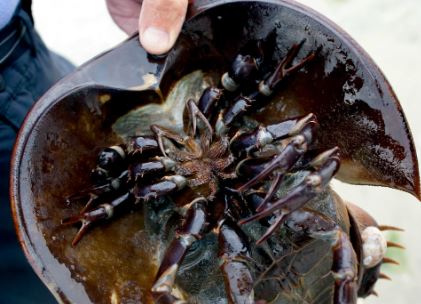
The research team had also observed that up to 80 percent of samples obtained from the Ramsgate beach were contaminated. Likewise, up to 40 percent of samples taken from the Herne Bay area suffered from microplastic contamination. According to the experts, all the sites exhibited clear signs of the problem. Rob Dyer from the Kent and Essex Association of Inshore Fisheries and Conservation Authority (IFCA) has cautioned that the plastic getting into mussel tissue could trigger stress and inhibit the animals' capacity to reproduce.
Dr. Stephanie Wright from King's College London has also warned that while the mussel samples tested were not taken from farms or were intended to enter the food chain, the current issue on microplastic pollution may have extensive implications. According to Dr. Wright, other animals may well consume mussels contaminated with microplastics, which in turn may readily include the particles in the food cycle. The expert has also stressed that the particles may either pass harmlessly through the digestive tract or could be released into the environment and impact human health. (Related: Microplastic pollution is the REAL threat to our oceans, warn scientists.)
Microplastic pollution also affects marine food source
Aside from mussels, other marine food sources such as fish and crabs have also shown alarmingly high levels of microplastic contamination. In fact, data from the United Nations (U.N.) Environment Project report has shown that a large portion of fish around the world are contaminated with the harmful particles. As part of the study, the research team examined intestine samples from fish sold at markets in California and Indonesia. The experts have found that more than 25 percent of fish sold around the world are exposed to microplastics.
Another study carried out by researchers at the California State University (CSU) Chancellor's Office has also demonstrated that crustaceans such as crabs are not spared from the current dilemma. The scientists examined the digestive systems of multiple crab species along California’s coast as part of their research. The experts noted that a large portion of species examined had ingested the toxic particles. The researchers even observed that one organism exhibited nearly 100 fragments of microplastics in its system.
“Marine debris is everywhere; it’s on the surface of the ocean, it’s on our beaches, and its presence is increasing. We’re seeing more [marine debris] in our oceans now than in the past. The thing that is most disturbing to me is the not the ‘macrodebris’ that we can easily see with our eyes; it’s the ubiquity of microplastics that has completely blown me away. Microfibers and microplastics can displace critters’ natural food and natural behavior. The critter may need to work more and use more energy; it may block their intestinal tracts,” lead researcher Sean Anderson has told Science Daily online.
“Trash in the ocean, including significant amounts of microplastics, is a pervasive and significant problem in the waters off California as well as around the world. Microplastics are particularly concerning because of their ubiquitous distribution and disastrous impacts on marine life. [Microplastics] act like a sponge, soaking up additional pollutants from the surrounding waters, only to leach them back out again, oftentimes into animals that have ingested the plastics. This leads to accumulation of toxic chemicals in marine life, even in situations where the animals are far from humans,” marine expert Krista Kamer added.
Sources include:
Please contact us for more information.























